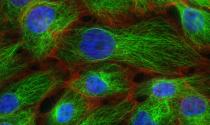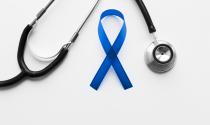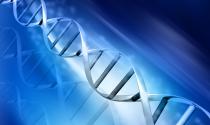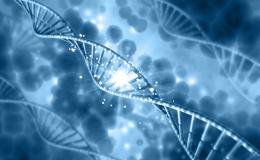Which Cancers Run in Families?
Cancer is a disease of uncontrolled cell multiplication. Normal cells become cancer cells through changes (or mutations) in the DNA of genes that control a variety of cellular functions, including cell division, cell growth and DNA repair.

Cancer is a disease of uncontrolled cell multiplication. Normal cells become cancer cells through changes (or mutations) in the DNA of genes that control a variety of cellular functions, including cell division, cell growth and DNA repair. We accumulate random changes in the genes of individual cells primarily through mistakes in DNA replication and exposure to chemicals and agents like radiation and cigarette smoke, called mutagens, known to alter the sequence of our DNA. DNA repair genes fix many of these changes in DNA, however, the more of these changes an individual collects over time, the more likely one of the accumulated changes will be missed by DNA repair mechanisms and affect the function of a gene that regulates cell multiplication or DNA repair. Cancers that occur from DNA changes in an individual cell accumulated over time are called sporadic cancers, which account for an estimated 75-80% of cancer cases.1 Importantly, however, certain cancers can actually run in families, meaning that gene mutations that increase the risk of developing cancer can be passed from parent to child.
Hereditary cancers are caused by a gene mutation that is passed from an affected parent to a child and is present at birth, meaning the inherited gene mutation is present in every cell of the child’s body, conferring an increased risk of cancer in every cell from day one. Because of this, hereditary cancers may present differently in patients compared to sporadic cancers. Some examples of circumstances that may lead a physician to suspect a hereditary cancer syndrome are:
- a high number of cancer cases in the same family, particularly if it is an uncommon cancer
- an earlier age of diagnosis than usual
- two or more cancers present in an individual
- cancers present in both of a pair of organs, such as both of the eyes or breasts
- childhood cancers in siblings
- a cancer diagnosis in an individual whose sex is not usually associated with the cancer, like breast cancer in a man
- cancer in many generations on one side of the family2
In addition to these differences in disease presentation, hereditary cancers can also be more aggressive, more likely to spread to other tissues, and may respond better to different treatments than sporadic cancers. Because of the earlier onset of many inherited forms of cancer, it may also be appropriate to use screening measures at a younger age compared to individuals that do not have a family history of cancer.3
To date, the National Institutes of Health (NIH) has classified 27 different hereditary cancer syndromes4, however not every hereditary cancer is associated with a named syndrome. Many hereditary cancer syndromes are associated with mutations in more than one gene and most are associated with more than one cancer type. To illustrate this point, we have selected three different hereditary cancer syndromes to highlight here: Hereditary Breast and Ovarian Cancer (HBOC), Lynch and Li-Fraumeni syndromes.


HBOC Syndrome
HBOC syndrome is an inherited cancer syndrome that results in a higher rate of breast and ovarian cancer development. The most common gene mutations associated with HBOC occur in the BRCA1 and BRCA2 genes, two genes that repair DNA in the cell. Because of this, harmful mutations in BRCA1 and BRCA2 not only increase the risk of breast and ovarian cancers, but also melanoma, and pancreatic and prostate cancers, among others.
Harmful mutations in BRCA1 or BRCA2 that cause HBOC are considered dominant mutations, where only one copy of the mutated gene is necessary to confer an increased risk of cancer development. This mutation can come from either parent, and a child will have a 50% chance of inheriting a BRCA1 or BRCA2 mutation from a carrier parent. It is estimated that the likelihood of an individual possessing either a harmful BRCA1 or BRCA2 gene mutation is about 1 in every 400 to 500 people. A harmful BRCA1 mutation confers a 46-87% risk of breast cancer and a 39-63% risk of ovarian cancer development in women over their lifetime, and the risk is 38-84% for breast cancer and 16.5-27% for ovarian cancer with a harmful BRCA2 mutation.5 Importantly, possessing a harmful BRCA1 or BRCA2 gene mutation does not guarantee that an individual will develop cancer in their lifetime; rather, the mutation increases this risk.
HBOC is characterized by the diagnosis of breast cancer before the age of 50, multiple breast cancers in either one or both breasts, male breast cancer and ovarian cancer. The presence of pancreatic cancer or melanoma with breast or ovarian cancer is also suggestive of the syndrome. Additionally, a family history of breast cancer or another relative with breast cancer diagnosed before the age of 50 may also signal a hereditary form of disease.Critically, if a harmful BRCA1 or BRCA2 mutation is found in an individual through hereditary cancer screening, increased disease monitoring and/or preventative measures can be initiated. Specific therapies such as PARP inhibitors for recurrent ovarian and other BRCA-associated cancers have shown some success.6 Importantly, the prognosis for BRCA-associated breast cancers is similar to that of breast cancers without BRCA gene mutations.7


Lynch Syndrome
Lynch syndrome is a hereditary cancer syndrome associated with an increased risk of colorectal, intestinal, stomach, ovarian and endometrial cancer development, among others. Lynch syndrome is caused by harmful mutations in five different genes: MLH1, MSH2, MSH6, PMS2 and EPCAM. MLH1, MSH2, MSH6 and PMS2 all function in DNA repair. Interestingly, EPCAM2 is located near MSH2 and harmful mutations in EPCAM can actually inactivate the MSH2 gene.
Harmful changes in Lynch syndrome genes MLH1 and MSH2 are associated with a 70-80% lifetime risk of developing cancer and harmful MSH6 or PMS2 mutations are associated with a 25-60% lifetime risk.8 Like BRCA1- and BRCA2-associated HBOC, Lynch syndrome gene mutations are dominant, and only one copy of the mutation needs to be inherited to increase cancer development risk, and any individual carrying a Lynch syndrome mutation has a 50% chance of passing that same mutation on to their child. About 1 in 279 individuals in the United States carries a harmful gene mutation associated with Lynch syndrome.9 Also like HBOC, Lynch syndrome mutations do not guarantee an individual will develop cancer in their lifetime, but does increase the risk of disease development.
Lynch syndrome is characterized by a family history of colorectal cancer, development of colorectal cancer at an early age, colorectal cancer in the right side of the colon, the development of more than one Lynch syndrome-associated cancer, and faster cancer development. Individuals with harmful Lynch syndrome mutations may undergo more frequent cancer screenings or preventative procedures depending on their risk level. Colorectal cancers associated with a Lynch syndrome gene mutation are treated similarly to colorectal cancers that are not associated with the syndrome. Treatments include surgery, chemotherapy and radiation therapy. Importantly, the prognosis for heritable forms of colorectal cancer is actually better than sporadic forms of the disease.10


Li-Fraumeni Syndrome
Li-Fraumeni syndrome is characterized by the development of cancers, such as breast cancer, bone cancer, soft tissue sarcomas and leukemia, in children and young adults. The risk of developing invasive cancer, excluding melanoma, with this syndrome is 50% by age 40 and 90% by age 70.11 It is estimated to occur in only 1 out of every 5,000 to 20,000 people worldwide. Li-Fraumeni syndrome is caused by harmful mutations in the TP53 gene, a gene responsible for controlling cell growth and division.
Li-Fraumeni syndrome requires a single harmful TP53 gene mutation to increase an individual’s risk of developing cancer. The vast majority of people with Li-Fraumeni syndrome inherit their altered TP53 gene from one affected parent, and the likelihood that an affected parent would pass their dominant, altered TP53 gene to their child is 50%. Interestingly, however, between 7-20% of individuals with the syndrome possess an altered TP53 gene that originated during the development of reproductive, or egg and sperm, cells in one of the parents.12 Each person carries two copies of the TP53 gene, and individuals possessing an altered TP53 copy in every cell at birth have an increased risk of acquiring a harmful mutation in their second copy of TP53, resulting in no functional TP53 protein production and the development of a cancerous cell. These acquired harmful TP53 mutations are more likely to occur in the tissues associated with Li-Fraumeni cancers, such as breast, bone and muscle.
Cancers in individuals with Li-Fraumeni syndrome are typically treated the same way a sporadic cancer is treated, however radiation therapy is not always recommended for Li-Fraumeni patients as they may be more susceptible to developing secondary cancers after radiation treatment.13 Importantly, proper diagnosis and identification of TP53 mutations are critical for the prognosis of Li-Fraumeni patients, as aggressive screening measures are required to adequately monitor disease progression.
If you have a family history of cancer, be sure to communicate this with your physician. The Center for Disease Control has created a free tool you can use to create a family history outlining disease occurrence in your family that can be accessed here. Thanks to advances in DNA sequencing, hereditary cancer tests such as the Kailos Genetics ExpedioTM Hereditary Cancer Screening allow patients to be screened for variations in multiple genes associated with hereditary cancer in a single painless test. Click here to learn more about ExpedioTM or contact us for additional support.




